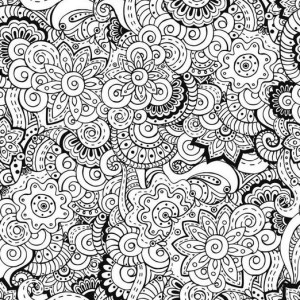 Many of us choose the new year as a time to set intentions to address unhelpful habits and return to our more healthful selves. Here are seven strategies for helping you stick to this year’s resolutions.
Many of us choose the new year as a time to set intentions to address unhelpful habits and return to our more healthful selves. Here are seven strategies for helping you stick to this year’s resolutions.
- Set an intention daily.
Identify the habit you want to change and set an intention to notice when it occurs throughout the day. Whether you want to be kinder to your coworkers, stop biting your nails or reduce procrastination, reminding yourself of your commitment can help you break free from automatic pilot. - Pay attention.
Pay attention to how the old pattern plays out in your life and take note. How does your body feel when you repeat the behavior? What do you think about yourself when you do it? Note the positive and negative results of engaging in the habit. Seeing how it impacts your life will increase your resolve to kick it. - Practice awareness of thoughts and feelings.
Mindfulness changes neuropathways in the brain, making it the number one tool when trying to pave a new path in the mind. The more we can compassionately pay attention to what we are thinking, feeling and doing in the present, the more opportunities we will have to make new choices. There are several activities that help mindfulness, including breathing, meditating and coloring. - Practice self-compassion.
Change is hard, and it’s helpful to admit that. Lasting change rarely happens when we come at the project with pitchforks and fire-throwers. Instead, try being kind to yourself, telling yourself something like, “This is hard. I want to change, but I’m pretty uncomfortable with it.” Softening around the discomfort, remembering that everyone struggles to break bad habits and offering yourself a loving sentiment can help. - Visualize the change.
Imagine your life without this pattern. Studies have shown that brain circuitry lights up similarly whether we are visualizing something or actually experiencing it. Give yourself time to imagine your life without this troublesome pattern. - Connect with community.
We are relational beings. When we connect with others, our bodies release oxytocin, a hormone that promotes well-being. When we connect to others, we reduce isolation, and give the other person a feeling of usefulness and purpose and remind ourselves we are not the only one to struggle. Most importantly, we disprove our faulty belief that we are alone. - Believe you’ll beat the habit.
Believe in transformation. Look for models of others who have been able to transform their old habits into thriving and joyful lives. This is one of the better selling points of anonymous meetings. People can witness in others what they want for themselves. Seek out inspiration in poetry, movies and books that talk about overcoming.
We are capable of change. If you’ve discovered other strategies for breaking bad habits, we’d love to hear from you. Leave a comment telling us what worked for you.
 By Laura Kramer
By Laura Kramer
Laura Kramer was the JFS Addiction Counselor & Educator. She holds a Master’s Degree in Psychology from Antioch University in Seattle. Her specialties of study include counseling for substance and process addictions, mindfulness and psycho-spiritual growth. She is currently in private practice.



